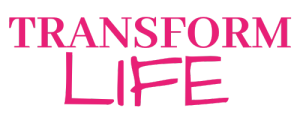
Occupational Therapy (OT) and Positive Behaviour Support (PBS) are two distinct but complementary approaches used to improve the well-being and quality of life of individuals, particularly those with disabilities or developmental challenges. While they have different focuses and methods, they often intersect in practice. Here’s a comparison:
Occupational Therapy (OT)
Focus:
OT primarily focuses on helping individuals develop, recover, or maintain the skills needed for daily living and working. This includes physical, cognitive, sensory, and motor skills, as well as social and emotional abilities.
Approach:
⦁ Holistic and Client-Centered: OT takes a holistic approach, considering the whole person, including their environment and personal goals. Therapists work with clients to improve their ability to perform daily tasks, such as dressing, eating, working, or leisure activities.
⦁ Functional Skills Development: OT emphasises building functional skills that enhance independence. This could include improving fine motor skills, sensory processing, or cognitive functions.
⦁ Adaptations and Modifications: OTs often recommend and implement adaptations to the environment, such as assistive devices, to help individuals participate more fully in life activities.
Settings:
OTs work in a variety of settings, including schools, hospitals, clinics, community centers, and homes.
Positive Behaviour Support (PBS)
Focus:
⦁ PBS focuses on improving the quality of life by reducing challenging behaviors and enhancing positive behaviors through proactive, educational, and systemic approaches. It is particularly used with individuals who have developmental disabilities, autism, or other behavioral challenges.
Approach:
⦁ Behavioral Assessment and Intervention: PBS is based on understanding the reasons behind challenging behaviors (the function of the behavior) and addressing them through positive reinforcement, skill-building, and environmental adjustments.
⦁ Proactive and Preventative: Instead of merely reacting to behaviors, PBS emphasises preventing them by teaching alternative, positive behaviors and modifying the environment to reduce triggers.
⦁ Collaborative and Person-Centered: PBS involves collaboration among caregivers, teachers, therapists, and the individual. The interventions are tailored to the person’s unique needs, strengths, and preferences.
Settings:
PBS is implemented in diverse environments, including homes, schools, community settings, and residential care facilities.
Key Differences and Intersections
⦁ Focus: OT is broader in scope, targeting a wide range of daily living skills, while PBS specifically targets behavior and its underlying causes.
⦁ Methodology: OT uses a combination of therapeutic activities, environmental modifications, and skill development, while PBS is rooted in behavioral science and emphasises understanding and modifying behavior through positive strategies.
⦁ Interventions: OT might focus on improving a child’s fine motor skills for writing, while PBS might address the behavior of avoiding writing by teaching coping strategies and providing positive reinforcement.
Complementary Nature
⦁ Holistic Support: While OT works on developing practical skills needed for daily life, PBS can help ensure that challenging behaviors don’t interfere with the use of these skills. For instance, a child who learns self-care skills through OT might benefit from PBS to address behaviors that hinder self-care routines.
⦁ Team Approach: In many cases, OT and PBS professionals collaborate, especially in settings like schools or clinics, to provide comprehensive support. For example, an OT might recommend sensory-based interventions that a PBS professional can incorporate into a behavioral plan.
Conclusion
In summary, both OT and PBS are essential in supporting individuals with developmental challenges, each addressing different aspects of functioning and behavior to improve overall well-being.

Transform Life is a NDIS registered organisation that provide support for your autistic child, as well as support to you as a parent to best navigate the challenges your child and family face on a daily basis.
Book your consult with an experienced Therapist at Transform Life to explore how OT, PBS and Speech Therapy can support you and your family.







